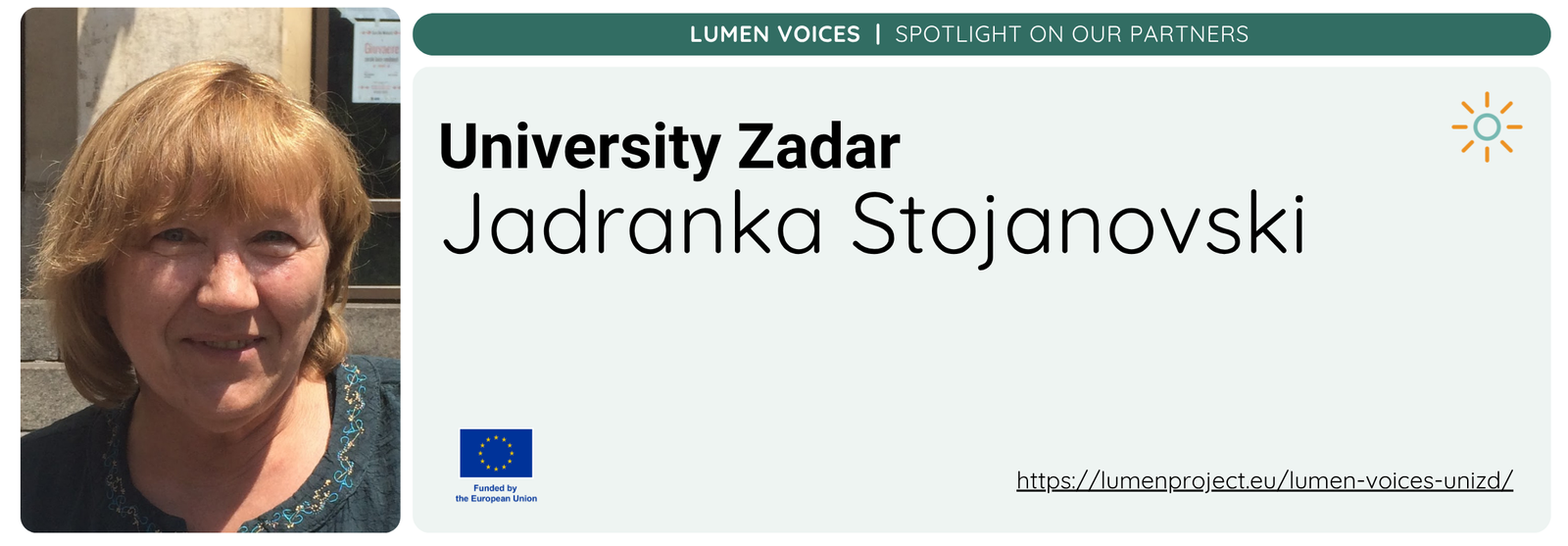
In this series, we share short interviews to introduce you to the diverse partners contributing to our LUMEN vision. Each month, we shine a spotlight on two of our partners—offering a glimpse into who they are, what they do, and what drives their work within LUMEN. In this edition, Jadranka Stojanovski answered our questions.

Can you briefly introduce your organisation and its role within the LUMEN project?
The University of Zadar (UNIZD) is a dynamic Croatian university that brings together 27 departments and several research centres, with a strong focus on the humanities and social sciences. Alongside these core fields, UNIZD also offers a few study programmes in technical, biotechnical, and health studies. Within the LUMEN project, UNIZD contributes primarily to WP3 “User research and co-design”, helping ensure the platform is built around users’ real needs. We are also involved in WP6 “Multiplatform innovative features” and WP8 “Communication and dissemination.”
What is the most exciting aspect of your contribution to LUMEN, and how does it align with your organisation’s mission or values?
We are excited to lead Task T3.5 “Testing the UI with users,” where we collaborate with partners to explore how researchers interact with different discovery platforms. By combining usability metrics with qualitative feedback, we aim to provide valuable insights into user experience and help refine the interface to make it as intuitive as possible. This work aligns closely with the mission of our Laboratory for Interactive Systems and User Experience (UX Lab) and with UNIZD’s vision of being a modern, international university that fosters innovation and continuous improvement.
LUMEN is all about interdisciplinary collaboration. How do you envision the project transforming the way research is conducted?
Interdisciplinary and multidisciplinary research are increasingly vital for addressing today’s complex societal challenges — not only by integrating diverse perspectives, but by combining methods, concepts, and theories from multiple disciplines to create something new. LUMEN makes this process easier by developing smart, connected discovery tools that bring together knowledge from the social sciences, humanities, natural sciences, and beyond. In the long run, we hope it will help researchers find unexpected connections and foster collaborations that might not happen otherwise.
Looking ahead to 2027 and beyond, what impact do you hope the LUMEN project will have on the broader research community and beyond?
We hope that LUMEN will become a trusted and widely used environment for discovering, sharing, connecting, and reusing research across disciplines – a place where researchers feel inspired to explore together. Beyond supporting the research community, we believe its open and user-centred approach can help shape a more connected, transparent, and inclusive research ecosystem, one that truly reflects the collaborative spirit of science and scholarship.

